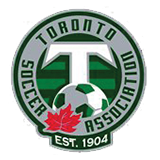Youth Recreational & Competitive Soccer
Overview of the Program
Why Do Kids Need Sports Beyond Just ‘Staying Active’?
At Toronto Hawks, we don’t see soccer as just a game—it’s a powerful tool for shaping a child’s mind, body, and character. In today’s world, where children are constantly surrounded by distractions, sports provide an opportunity to reset, focus, and grow in ways that go beyond just staying physically fit.
The Real Benefits of Sports
Stronger Mind, Sharper Focus:
Physical movement directly impacts brain function. Research shows that kids who engage in regular sports have better concentration, improved memory, and stronger problem-solving skills (Best, 2010). Playing soccer enhances cognitive flexibility, helping children think quickly and make decisions under pressure.
Reduced Stress & Emotional Balance:
With rising cases of anxiety and stress among children, sports act as a natural stress reliever. Studies confirm that physical activity increases dopamine and serotonin levels—chemicals responsible for happiness and relaxation—while reducing cortisol, the stress hormone (Biddle & Asare, 2011). This helps kids regulate emotions, handle pressure, and stay mentally resilient.
Building a Winner’s Mindset:
Winning and losing are part of sports, but the real lesson is in learning how to bounce back. At Toronto Hawks, we teach kids how to embrace challenges, recover from setbacks, and stay determined—a growth mindset that research ties to long-term success (Dweck, 2006). These skills translate to school, friendships, and future careers.
Less Screen Time, More Real-Life Wins:
Instead of passively consuming content online, kids in our program engage in real-world interactions, teamwork, and problem-solving. Excessive screen time is linked to lower psychological well-being (Twenge & Campbell, 2018), while sports provide tangible achievements through effort.
Physical Strength & Injury Prevention:
Beyond endurance and agility, soccer strengthens muscles, improves coordination, and builds long-term joint health. We focus on proper techniques to ensure kids develop strong, healthy bodies that prevent injuries and support lifelong fitness—a key principle of long-term athlete development (Balyi & Hamilton, 2004).
At Toronto Hawks, we don’t just train soccer players—we build confident, focused, and resilient individuals. Every practice, every drill, and every match is designed to empower kids not just on the field, but in life.
Long-Term Player Development: A Proven, Research-Backed Path
Long-term player development (LPD) is the heart of our philosophy at Toronto Hawks. Unlike many sports programs that focus solely on short-term performance, we take a research-backed approach to ensure that your child’s growth in soccer is holistic, sustainable, and aimed at their long-term success.
Our approach is based on The Long-Term Athlete Development (LTAD) Model, a framework endorsed by experts worldwide that focuses on age-appropriate skill development over time. This model has been adopted by top-tier sports organizations like Canada Soccer and the American Development Model (ADM). It emphasizes that children’s physical, mental, and emotional development must align with their age and maturity level for optimal growth.
Mental and Emotional Balance:
Studies have shown that when children play sports in an environment that nurtures emotional intelligence, they are more likely to excel academically, socially, and physically (Gould & Carson, 2008). Through the LTAD framework, we focus on developing emotional resilience—teaching children how to manage their emotions in high-pressure situations, regulate their anxiety, and maintain focus, all while learning to enjoy the process of improvement.
Sustained Motivation and Confidence:
Self-Determination Theory (Deci & Ryan, 2000) highlights that children who feel competent and autonomous in their activities are far more likely to stay motivated. That’s why our approach emphasizes self-reflection and goal-setting, where each player is encouraged to identify their personal progress and take ownership of their development. This self-driven approach results in a deeper connection to the game and a more sustained commitment over the years.
Holistic Development:
Soccer is about far more than just footwork. According to sports psychologist Dan Gould, success in sports is just as much about mental and emotional development as it is about physical ability. At Toronto Hawks, we ensure that players learn the life skills that will serve them well beyond the field, such as leadership, teamwork, discipline, and strategic thinking. These are the qualities that define successful athletes and high-achievers in any field.
By committing to a long-term developmental pathway, we are not simply training your child to be a better soccer player—we are providing them with the tools to succeed in all aspects of their life, helping them cultivate critical skills that will last a lifetime.
Why this matters:
This approach is not just revolutionary—it’s backed by decades of research in sports psychology, neuroscience, and youth development. We’ve seen the evidence, and we’ve integrated it into every aspect of our program. Whether a child’s journey leads to competitive play, recreational soccer, or life outside of sports, the skills, emotional resilience, and self-confidence they develop at Toronto Hawks will prepare them to excel in whatever they choose to pursue.
References
Balyi, I., & Hamilton, A. (2004). Long-Term Athlete Development: Trainability in childhood and adolescence. Windows of opportunity. Optimal trainability. National Coaching Institute British Columbia & Canadian Sport Centres.
Best, J. R. (2010). Effects of physical activity on children’s executive function: Contributions of experimental research on aerobic exercise. Developmental Review, 30(4), 331–351. https://doi.org/10.1016/j.dr.2010.08.001
Biddle, S. J. H., & Asare, M. (2011). Physical activity and mental health in children and adolescents: A review of reviews. British Journal of Sports Medicine, 45(11), 886–895. https://doi.org/10.1136/bjsports-2011-090185
Deci, E. L., & Ryan, R. M. (2000). The "what" and "why" of goal pursuits: Human needs and the self-determination of behavior. Psychological Inquiry, 11(4), 227–268. https://doi.org/10.1207/S15327965PLI1104_01
Dweck, C. S. (2006). Mindset: The New Psychology of Success. Random House. https://www.penguinrandomhouse.ca/books/44330/mindset-by-carol-s-dweck-phd/9780345472328
Gould, D., & Carson, S. (2008). Life skills development through sport: Current status and future directions. International Review of Sport and Exercise Psychology, 1(1), 58–78. https://doi.org/10.1080/17509840701834573
Hillman, C. H., Erickson, K. I., & Kramer, A. F. (2008). Be smart, exercise your heart: Exercise effects on brain and cognition. Nature Reviews Neuroscience, 9(1), 58–65. https://doi.org/10.1038/nrn2298
Twenge, J. M., & Campbell, W. K. (2018). Associations between screen time and lower psychological well-being among children and adolescents: Evidence from a population-based study. Preventive Medicine Reports, 12, 271–283. https://doi.org/10.1016/j.pmedr.2018.10.003
Why soccer?
Why soccer? Why not any other sport?
Among all sports, soccer is special.
It’s played in every corner of the world, teaching cultural awareness and unity.
It challenges both the mind and body, requiring strategic thinking, positioning, and quick decision-making.
It’s the most team-oriented sport, teaching communication, trust, and leadership in a way no other sport can.
And above all, it’s simply FUN.



